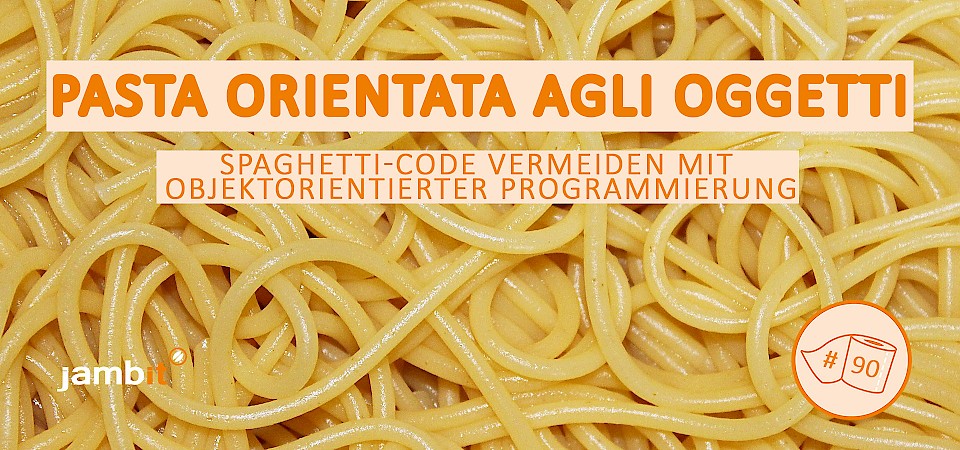
Avoiding Spaghetti Code with Object-oriented Programming: Pasta Orientata Agli Oggetti
Problem: How to avoid spaghetti code?
Spaghetti code is often associated with "unstructuredness". Object-oriented (orientata agli oggetti) programming and paradigms help to avoid spaghetti code. Unfortunately, inheritance and the template method pattern can cause new ways to develop spaghetti code. However, the terms spaghetti code and unstructured are too vague to explain this aspect. Therefore, this first attempt to define spaghetti code more detailed:
The program flow of spaghetti code complicates
the implementation details can be isolated on the one hand
and on the other hand can be hidden.
Example
Personal and generic letters should be created using a compose() method. The abstract class delegates to templates. The concrete implementations use compile(). An implementation is outlined in PersonalLetter.
public abstract class BaseLetter {
public String compose(String msg) {
return salutation() + body(msg)
+ signature();
}
protected abstract String salutation();
protected abstract String body(String);
protected abstract String signature();
protected String compile(String) {...}
}public class PersonalLetter
extends BaseLetter {
private String name;
protected String salutation() {
return compile("Dear _"+name+"_,");
}
protected String body(String) {...}
protected String signature() {...}
}The code is structured, but compile() is difficult to test. Details are only hidden to a limited extent. The reason is the program flow, which meanders through the class hierarchy. Similar examples are: BaseMapper, BaseTest, Base ...
Suggestions for improvement
Death to the protected! The template method pattern is convenient for public methods such as addAll() and add() for AbstractList. An inheritance that is only about reuse can often be replaced by delegation. In this case, the better solution is using the strategy pattern. Classes can easily be isolated and details can be hidden with private. The CompositionStrategy interface defines the template methods and MarkdownCompiler implements compile().
public class LetterComposer {
private CompositionStrategy strategy;
public String compose(String msg) {
return strategy.salutation()
+ strategy.body(msg)
+ strategy.signature();
}
}public class PersonalCompositionStrategy
implements CompositionStrategy {
private String name;
private MarkdownCompiler compiler;
public String salutation() {...}
public String body(String) {...}
public String signature() {...}
}

